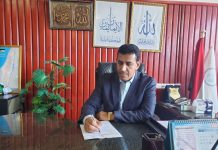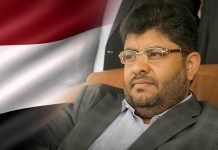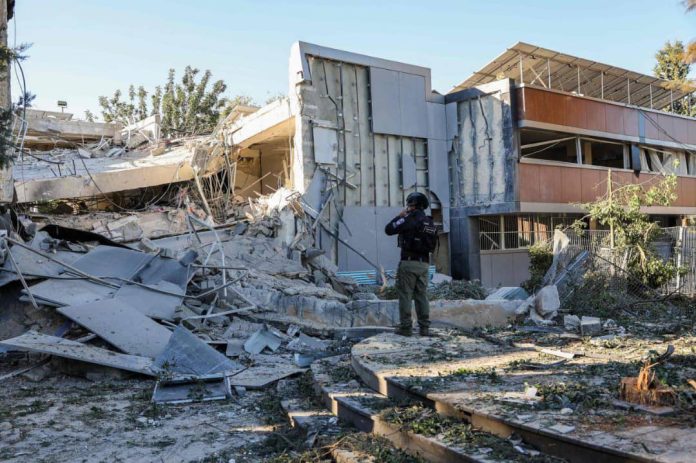The Wall Street Journal reported that the Houthis continue to disrupt trade routes in the Red Sea, disregarding the hundreds of strikes carried out by the U.S. and its allies.
The newspaper quoted Dr. Yoel Guzansky, a senior researcher at Israel’s Institute for National Security Studies (INSS), saying that the Houthis “don’t have a lot to lose” and “They cannot be deterred.”
He added that “they will not stop until Israel ends its war in Gaza.”
Several Israelis commented on the recent strike by the Yemeni armed forces on Tel Aviv. Nir Dvory, the military correspondent for Channel 12, noted that the missile that hit its target managed to breach defense layers due to modifications made to the warhead.
This included a rocket engine that changes direction upon entering the atmosphere, hindering the interception process. He explained that these modifications, including increased fuel and a smaller warhead, extended the range of Yemeni missiles.
Brigadier general Haimovich Zvika, the former commander of Israel’s air defense system, confirmed that recent developments show that “the Houthis are now capable of targeting central Israel, whereas their attacks were previously limited to Eilat.”
He noted that “the technical modifications made by the Houthis to their missiles increase their danger and pose new challenges to Israeli defenses.”
Brigadier General Ran Kochav, former commander of the Israeli Air Missile Defense Forces, told Channel 13 that “the recent failures in intercepting missiles are not due to new technologies or hypersonic missiles but rather a ‘dual failure’ in interception operations.”
Ronen Manelis, former spokesperson for the Israeli army, emphasized that the Yemeni attacks “pose a daily threat to large areas of Israel, forcing thousands to seek shelter,” asserting that “Israeli deterrence has not yet yielded the desired results.”
Michael Milshtein, head of the Palestinian Studies Forum at Tel Aviv University, stressed that confronting the Houthis requires a radical change in strategy.
He explained in an interview with Channel 12 that the focus should be on targeting the group’s leaders, similar to how Hezbollah was dealt with, despite acknowledging the difficulty of achieving this due to the lack of sufficient intelligence.




















